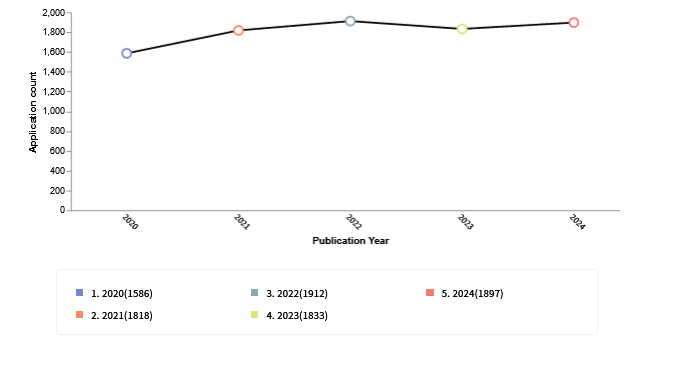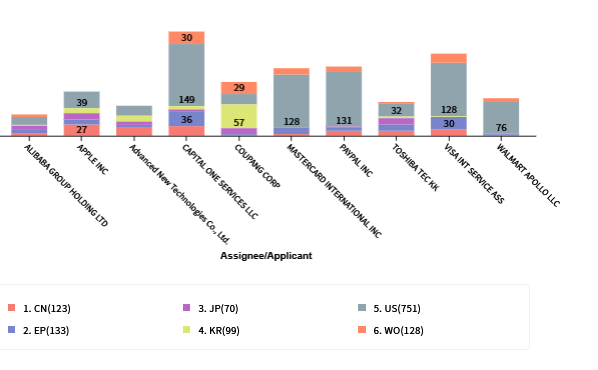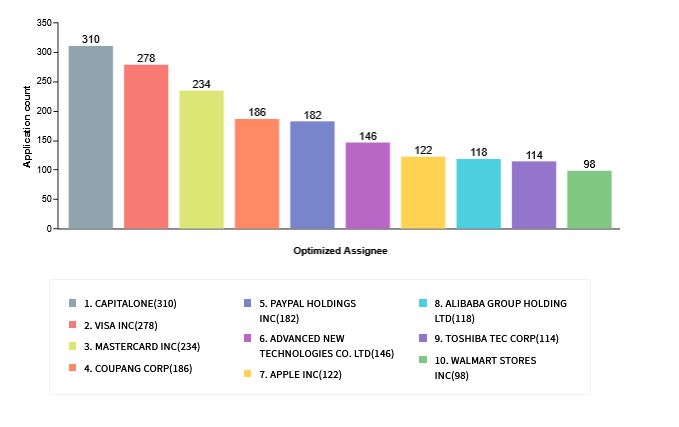Patents in eCommerce Unlocking Innovation in the Digital Marketplace
In today’s fast-evolving digital economy, the world of online commerce is not merely defined by the products sold or the services offered—it is driven by relentless innovation. The eCommerce landscape has become a fiercely competitive arena where technological advancements and user-centric solutions dictate success or failure. In this environment, innovation is far more than a differentiator; it is the lifeblood of sustainable growth, customer loyalty, and operational excellence.
As businesses strive to meet the escalating expectations of digital consumers—who demand frictionless navigation, hyper-personalized recommendations, instant checkout, and ultra-fast delivery—the underlying technologies that power these capabilities have become increasingly sophisticated. From intelligent search algorithms to real-time inventory management systems and predictive analytics, these innovations are not only transforming the user experience but also redefining the business models of global and niche players alike.
Understanding eCommerce Patents
eCommerce patents, largely falling under USPTO’s Class 705, are typically classified as business method patents covering technology-driven methods of conducting business. Once deemed too abstract, these became patentable after the 1998 State Street Bank v. Signature Financial ruling, which allowed protection for processes yielding a “useful, concrete, and tangible result.” This led to a surge in filings for innovations like digital wallets, secure transactions, AI-powered recommendation engines, and loyalty programs. However, abstract ideas alone aren’t patentable; only inventions with a concrete technological application and real-world utility qualify for protection.
Spotlight on Iconic eCommerce Patents
1. Amazon’s “1-Click” Purchase (US5960411A)
Amazon’s “1-Click” ordering, patented in 1999, allowed users to buy items with a single click, storing payment and address data in advance. This feature became a cornerstone of eCommerce convenience and sparked litigation that shaped the industry, most notably against Barnesandnoble.com. Though it expired in 2017, the concept remains a standard today.
2. eBay’s Personalized Search Algorithms
eBay has patented multiple technologies that optimize product visibility based on user behavior, past purchases, and bidding patterns. These algorithms ensure that the right products are seen by the right users—boosting both user satisfaction and conversion rates.
3. PayPal’s Fraud Detection Models
Online payment platforms like PayPal hold numerous patents for real-time fraud detection using machine learning. These systems monitor transactional patterns and user behaviors to flag and block suspicious activities before damage is done.
4. US10296920B2 – Centralized Online Advertising System
This patent proposes a system that centralizes user data to serve intelligent, request-based advertisements across networks—offering a smarter, data-driven approach to eCommerce marketing.
5. US20050021417A1 – Shopping Cart Interface
This patent covers a refined digital shopping cart system that enhances user experience by offering dynamic updates, saving abandoned carts, and integrating promotions in real time.
Emerging Trends in eCommerce Patent Filings
🔐 Blockchain & Smart Contracts
Blockchain is transforming how transactions are verified and secured in eCommerce.
Patents are being filed for tamper-proof ledgers that record every step of a product’s journey.Smart contracts are automating agreements between sellers and buyers without intermediaries.
Use cases include automatic refunds, escrow-based payments, and royalty tracking.
These innovations improve transparency, reduce fraud, and increase consumer trust.
Companies are also exploring decentralized ID verification and inventory tracking.
Blockchain patents are fast becoming foundational IP for future digital marketplaces.
🧬 AI & Predictive Commerce
AI is driving hyper-personalization in eCommerce by analyzing real-time consumer behavior.Patents are emerging for AI tools that tailor product recommendations and search results.
Predictive commerce uses AI to forecast inventory needs and automate restocking.
Dynamic pricing algorithms adjust product costs based on demand and competition.
Voice assistants powered by AI are also patented for personalized shopping support.
These tools not only enhance user experience but also optimize business operations.
AI-powered innovation is now a core IP strategy for tech-savvy retailers.
🚚 Logistics & Fulfilment Innovation
Back-end logistics are a new epicenter for patent filings in digital commerce.
Amazon leads with patents on drone-based deliveries and robotic warehouse systems.
Startups and giants alike are patenting route optimization and inventory flow models.
Smart packaging, autonomous delivery bots, and thermal shipping solutions are in focus.
Fulfillment speed and accuracy are being redefined through tech-enabled logistics IP.
These patents not only reduce costs but also elevate customer satisfaction.
Logistics innovation is securing its place as a competitive advantage in IP portfolios.
🗣️ Voice and Visual Shopping
As voice becomes the next UI, patents around conversational commerce are booming.
Technologies enabling Siri, Alexa, and Google Assistant to execute purchases are protected.Visual search—snap and shop—has led to patents in image recognition and AR overlays.
These systems let users find items from photos or even real-world environments.
Context-aware voice commands for browsing and order management are being patented.
Multimodal shopping interfaces (voice + visual) are redefining user interaction.
Retailers are securing these technologies early to lead the next wave of engagement.
🌐 Metaverse and AR Commerce
The rise of the metaverse is generating an explosion of immersive retail patents.
Companies are patenting virtual stores with 3D avatars and real-time shopping assistants.AR-based try-ons—for clothes, glasses, furniture—are being integrated into mobile apps.
Design patents now cover interactive elements in digital showrooms and environments.
Blockchain-linked virtual goods and NFTs are creating new revenue streams.
These innovations enhance engagement and simulate in-store experiences remotely.
The metaverse is no longer theoretical—it’s a patented digital economy in motion.
Annual Trends in Patent Publications

Source: Retrieved through Derwent Innovation
Patent publishing trends from 2020 to 2024 shows a clear upward trajectory in application counts, highlighting steady growth in innovation activity over the five-year span. Starting with 1,586 published applications in 2020, the number rose significantly to 1,818 in 2021 and peaked at 1,912 in 2022. Although there was a slight decline to 1,833 in 2023, the count rebounded to 1,897 in 2024, nearly matching the previous high. Overall, this reflects a 19.6% increase from 2020 to 2024, indicating sustained interest in intellectual property protection and resilience in R&D investments despite minor year-to-year fluctuations. The trend underscores the strategic importance of patents across emerging sectors, especially as businesses increasingly rely on innovation to stay competitive.
Top Patent-Holding Nations and Regions

Source: Retrieved through Derwent Innovation
Patent application counts across major eCommerce and tech companies, revealing that Amazon Technologies Inc. leads with 149 U.S. filings and a broad international presence, particularly in EP and KR. Capital One, Mastercard, and Visa also show strong U.S.-focused portfolios, each exceeding 120 filings, with additional applications across Europe, Korea, and WIPO jurisdictions. Companies like Toshiba TEC and Alibaba display globally balanced strategies, filing in multiple regions including CN, JP, and WO. Meanwhile, Walmart Apollo LLC has a more domestically concentrated IP approach with 76 filings. Overall, the U.S. dominates as the preferred jurisdiction with 751 total applications, underscoring its importance in global eCommerce patent strategy and innovation leadership.
Top Assignees in Patent Filings

Source: Retrieved through Derwent Innovation
The top optimized assignees in terms of patent application counts, with Capital One leading at 310 applications, demonstrating a strong focus on innovation in digital finance and eCommerce. Visa Inc. follows with 278 applications, and Mastercard Inc. ranks third with 234, reflecting intense competition and IP investment in the fintech space. Coupang Corp. and PayPal Holdings Inc. also feature prominently, with 186 and 182 filings respectively, underscoring their rapid technological advancements. Other major players include Advanced New Technologies Co. Ltd (146), Apple Inc. (122), Alibaba Group (118), Toshiba TEC Corp. (114), and Walmart Stores Inc. (98). The data indicates a diverse range of global companies aggressively securing IP to strengthen their positions in eCommerce, digital payments, logistics, and smart retail infrastructure.
Global Trends in Patent Filings Across Leading Jurisdictions
Over the past five years, 11,055 patent filings were recorded globally, reflecting strong innovation activity. The U.S. leads with 4,822 filings, followed by China (2,358), and significant contributions from South Korea (1,006), Europe (814), and WIPO (737). Japan (629) remains a key player, while Canada (277), Australia (262), and Taiwan (150) show growing IP engagement. The data highlights a clear shift toward multi-jurisdictional patent strategies to secure innovations across major global markets.
Source: Retrieved through Derwent Innovation
Shopify Prevails in Patent Infringement Case Over Buy Button Technology
Shopify secured a major legal victory in August 2024 after a U.S. federal court dismissed a patent infringement lawsuit brought by DKR Consulting. DKR had accused Shopify of violating patents related to ecommerce “Buy buttons” and social media-integrated widgets, which were originally owned by DIY Media. However, Judge Hernán D. Vera ruled in favor of Shopify, agreeing that the patents in question merely described abstract ideas—namely, the use of conventional computer technology to combine product advertisements with order forms—and therefore were not patentable under U.S. law. Shopify’s legal counsel argued successfully that these were basic implementations of long-standing online business practices, lacking any novel or technological advancement.
This ruling not only underscores the judiciary’s firm stance on rejecting overly broad business method patents but also reinforces Shopify’s position as a defender against so-called “patent trolls.” Anne Lloyd, Shopify’s Vice President of Litigation, praised the decision and reaffirmed the company’s commitment to pushing back against baseless IP claims. The case highlights broader implications for the tech and ecommerce industries, as courts continue to draw clear lines around what constitutes true innovation versus generic digital execution. Shopify, a key player in North American ecommerce powering over 100 top online retailers, maintains its momentum in both platform expansion and legal resilience.
https://www.digitalcommerce360.com/2024/08/06/shopify-wins-a-case-where-ecommerce-technology-is-not-patentable/#:~:text=to%20facilitate%20ecommerce.%E2%80%9D-,Shopify’s%20extensive%20reach%20in%20ecommerce,paul@digitalcommerce360.com
Conclusion
As the digital economy continues to scale new heights, the role of intellectual property in eCommerce has shifted from being a mere legal safeguard to a powerful driver of strategic growth. Today’s most transformative online experiences—whether it’s frictionless one-click checkouts, AI-powered recommendations, or drone-enabled deliveries—are the result of years of patented innovation. For companies navigating the rapidly evolving landscape of digital retail, securing patents is no longer optional; it is essential for defending market share, attracting investment, and fostering long-term value creation. The rise in multi-jurisdictional filings and the diversity of players entering the patent ecosystem reflect a new global mindset—one that treats IP not as a formality, but as a competitive asset.
Looking ahead, businesses that proactively invest in protecting their technological advancements will be the ones defining the next era of eCommerce. From blockchain-based transactions to immersive metaverse storefronts, the frontier of digital commerce is being redrawn in real time—and patents are the blueprint. Whether you’re an established platform like Shopify or an emerging innovator disrupting conventional models, understanding and leveraging the power of eCommerce patents will determine your ability to scale securely, differentiate effectively, and lead confidently in a hyper-connected world. In essence, the future of digital commerce belongs not just to the fastest, but to the most strategically protected.
At Legal Advantage, we empower innovators in the fast-paced eCommerce sector by delivering end-to-end patent support tailored to the digital marketplace. From drafting high-quality patent applications to conducting thorough prior art searches and navigating complex multi-jurisdictional filings, our team ensures your innovations—whether in AI-powered commerce, blockchain logistics, or immersive shopping interfaces—are strategically protected


